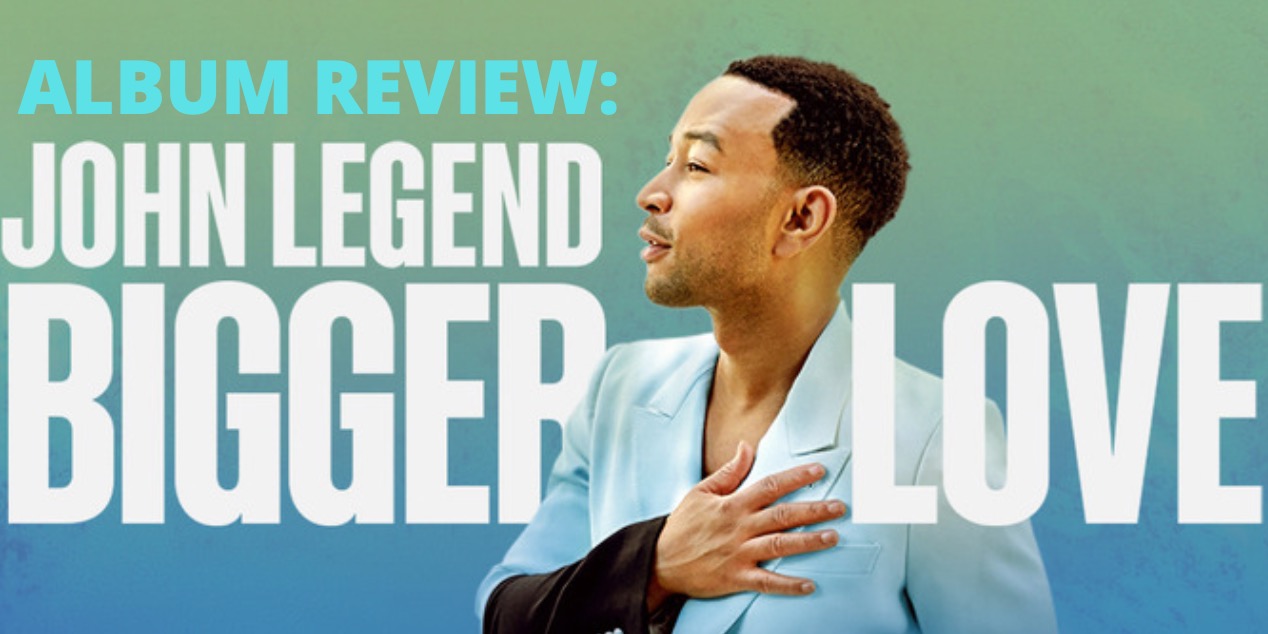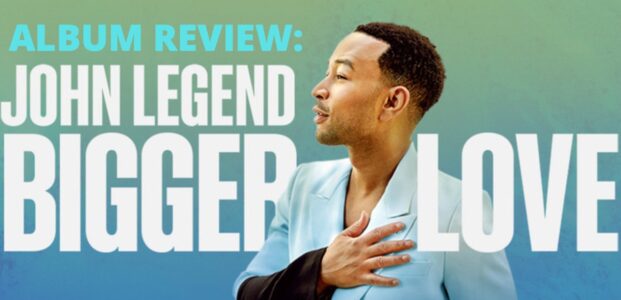John Legend recently released his newest album, “Bigger Love,” on June 19th. This album showcases Legend’s original and balladic voice while simultaneously, and unapologetically, highlighting the Black Lives Matter movement. Additionally, this album was released on the anniversary of Juneteenth, the holiday in honor of slavery being officially disbanded on June 19th, 1865. Even after President Abraham Lincoln signed the Emancipation Proclamation in 1863, African Americans in Texas weren’t informed of this until 1865. After the Civil War, there were still 250,000 people enslaved in Texas; Juneteenth marks the date slavery was fully abolished.
The first song, “Ooh Laa”, is filled with stretched out notes that fit the slow, intense undertones of a ballad. At first, it seems like a passionate, rosy song about someone coming home to experience lovemaking, but in reality, the lyrics subtly hint at a history of racial tension and his hopes for equality. One strong reference is at the start of the second verse where he sings, “You know I’m romantic/ I’d cross the Atlantic.” Although he seems to be discussing how far he would go for love, for him to use that rhetoric makes a point in relation to slavery. In the next song, “Actions,” the title alone speaks for the current political climate which is filled with protests, donations, solidarity, and more. The recurring first line in the chorus, “Actions speak louder than loves songs,” draws an obvious parallel between the phrase “Actions speak louder than words.” It touches on the fact that people can verbally claim to be an ally or post one black square on social media to show support. This performative activism, however, is not enough to spread awareness or to grow as a person. It is essential to prove that thought by sending donations or signing petitions- real action. Legend highlights that aspect of personal growth when he acknowledges that he’s been “doing it all wrong”, and he needs to relearn in order to make a tangible change. Just like the lover referenced in the song, allies who are calling for and taking action don’t merely want to hear words, and at the same time, people who might be ignorant or against the Black Lives Matter movement do not want to keep hearing the mass of voices in solidarity. People in solidarity protesting and donating at a time like this do not want to see one post from a person that only cares about their appearance as an anti-racist. On the other side, there are people who don’t want to listen to the racial tensions in this country. But, people need to come together and let their voices be heard to carry the movement forward. This is the deeper originality of John Legend’s newest album which illustrates his productive and effective use of his music platform to discuss BLM issues and take up space on social media.
There are bits and pieces of his subtle and not so subtle calls for attention to the Black Lives Matter movement, and the overall current situation under his soulful, uplifting musical tones. These songs are special, and they make us listeners think about how we are reacting to the events around us. They make us want to engage in deeper conversations. They make us want to learn from each other. They make us want to improve as people. Moreover, it’s done so in a positive and peaceful way, a way that invites collaboration, determination, hope, and passion. It’s a way to bring people closer together with those surrounding them, especially in quarantine, the undertones of the songs become even more relevant. They encourage family bonding and new, tough conversations, all while we’re still in the middle of the Covid-19 pandemic. And, honestly, we know we could all really use a little bit of relaxing love ballads and some hugs and kisses in these uncertain, uncomfortable times. Yes, we all need some “Bigger Love” right now, and on the essential anniversary of Juneteenth, no less.


